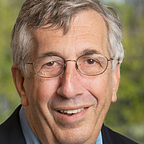We Could Be in a Different Place in the School Reopening Discussion — If Only We Thought About Kids
I’m going to say it: as a country, we don’t think about our kids early or often enough, and our current situation around opening schools is proof. COVID-19 was declared a global pandemic in March, and schools closed, along with many businesses, libraries, restaurants, bars, and hair and nail salons. More than 56.6 million children and young people were forced into distance learning, exposing glaring inequities in educational opportunities within school districts, counties, and states.
We all agree that schools are important for kids — for academics, as well as the important role they play in the lives of many kids beyond classroom learning. So unquestionably, the day schools closed was the day we should have started thinking and talking about the safest way to get kids back into the classrooms. We should have started identifying needs, and brainstorming plans for cohort groups, schedules, staffing, materials, resources. Instead, we figured it out for restaurants and bars ahead of schools. Putting it bluntly, we didn’t prioritize kids and we are now scrambling to make something work.
It’s hard to say who is responsible for this gross oversight. To start, the U.S. does not have governmental structures in place that focus on children and young people — if we did, the timeline for the conversation on reopening schools and the discussion around what is best for kids would be very different. The American Academy of Pediatrics, the National Education Association, the National Academies of Science and the CDC all voiced opinions on how to reopen schools, but from the state and federal levels, no one is guiding the ship, leaving states, counties, districts, schools, and individual families and teachers struggling to make decisions. Governors can be seen on polar extremes in their directives ( California’s Gavin Newsom mandated full-time distance learning for all watchlist counties; Missouri’s Mike Parson is taking the Just Do It approach of getting back to school).
President Trump continues to shout that it’s back to school at all costs; on July 8, President Trump tweeted: In Germany, Denmark, Norway, Sweden and many other countries, SCHOOLS ARE OPEN WITH NO PROBLEMS — overlooking that with the exception of Sweden, the governments and citizens in these countries made sacrifices to ensure their COVID-19 infection rates were under control before reopening their schools. In contrast, we have failed miserably at controlling the pandemic and our cases and infection rates remain, quite literally, all over the map.
In addition to following the science and listening to public health guidance, three of these countries have formal, federal-level governmental structures — an Ombudsman for Children in Norway, the Danish National Children’ Council and Minister of Children and Education in Denmark, and an Ombudsman for Children in Sweden. By advocating on behalf of children and using a child-centered lens when discussing programs and policies, the children’s commissioner or ombudsperson ensures topics such as reopening schools are prioritized, discussed in a timely and appropriate manner, and reflect the best interests of the children themselves. How different might our situation be if we had someone at the federal and state levels who was looking out for our young people, leading these discussions early on, and advocating for the safest and the best situations for all our kids?
When it comes to our children, it is our belief in the U.S. that we, as individual families, can and will, do anything to help our own kids thrive. This makes sense; after all, we’re a pull-ourselves-up-by-our-bootstraps nation, believers that if you work hard and put in the effort, you succeed. The reopening of schools is a great example of where efforts by individual families are simply not enough and a perfect illustration showing how all our kids and families are connected.
No single family’s efforts are or will ever be enough to get their child back to the school situation they were in a year ago.
It may come as a surprise, but in a pandemic, you can do everything humanly possible that is “right” for your child and yet, you still cannot allow your child to return to his or her “normal” life. There is nothing you, a group of families, a school, or even a lone state — let alone the President — can do on their own that will enable all schools in an entire country to safely reopen.
Instead, we need to ask ourselves: how can we create a society with the responsibility and willingness to act in service of all children and young people? The answer is obvious — and a challenge to us all.
We need to change our collective mindset and recognize that what is right for one child has to be right for all our kids. We are in an awful situation making difficult decisions with imperfect information, because we don’t think about or advocate for kids — all our kids — early and often enough. We, as a society, have not yet realized that an interrelationship exists between all of us — but we must, and we need to work together if we want our kids to thrive. If a global pandemic doesn’t help us come to this awakening, I am not sure what will.
Originally published at https://www.leadingforkids.org on August 4, 2020.
